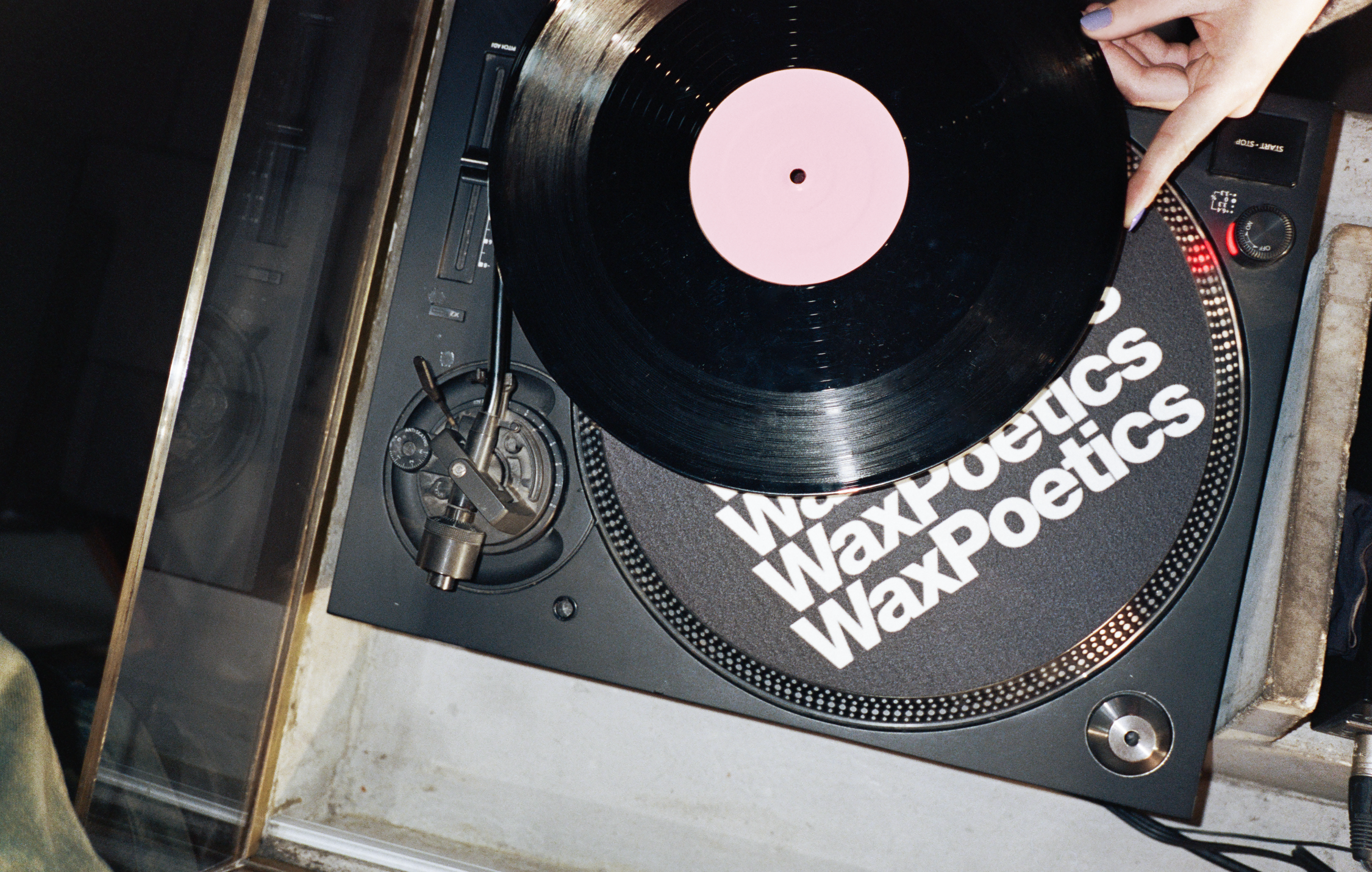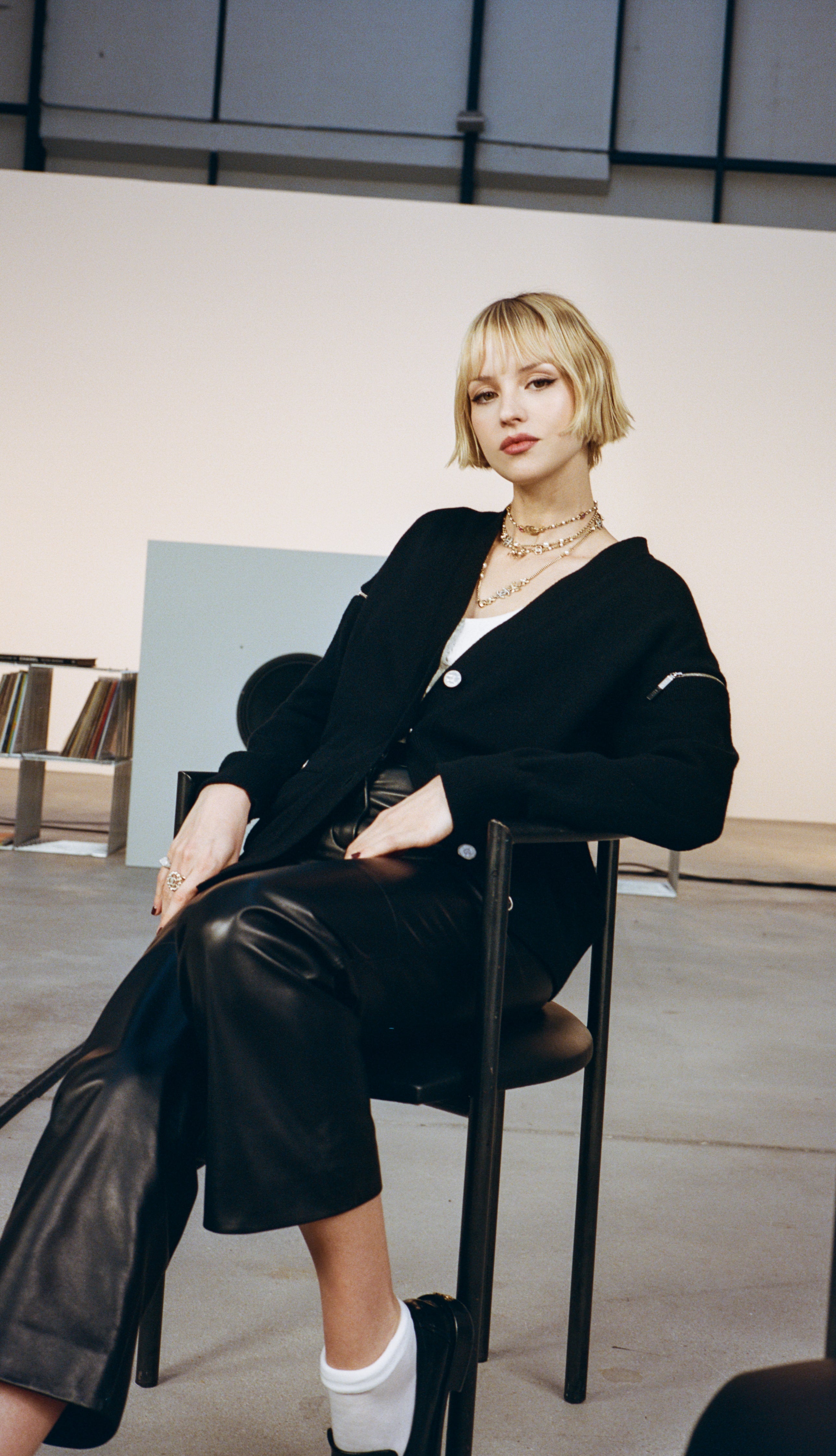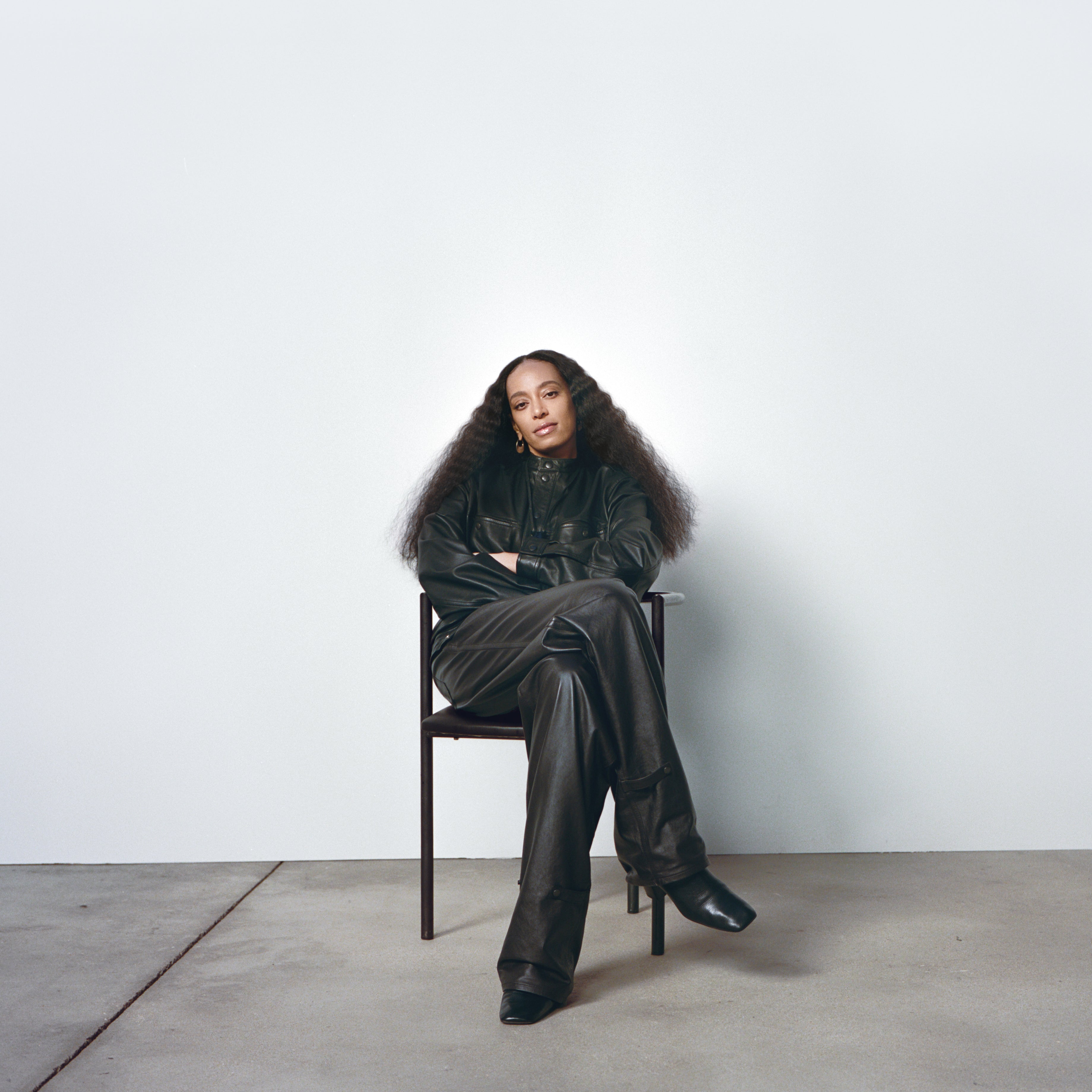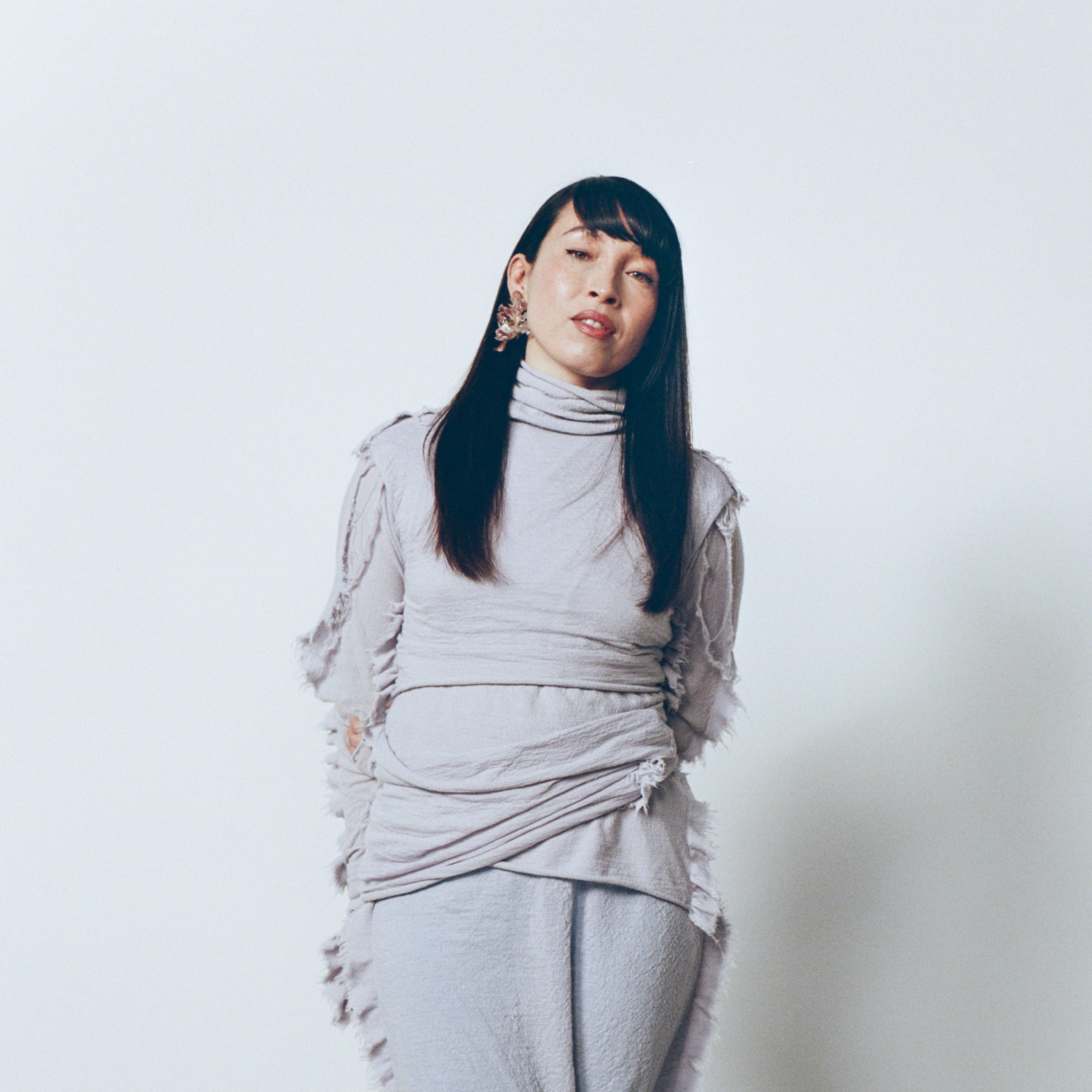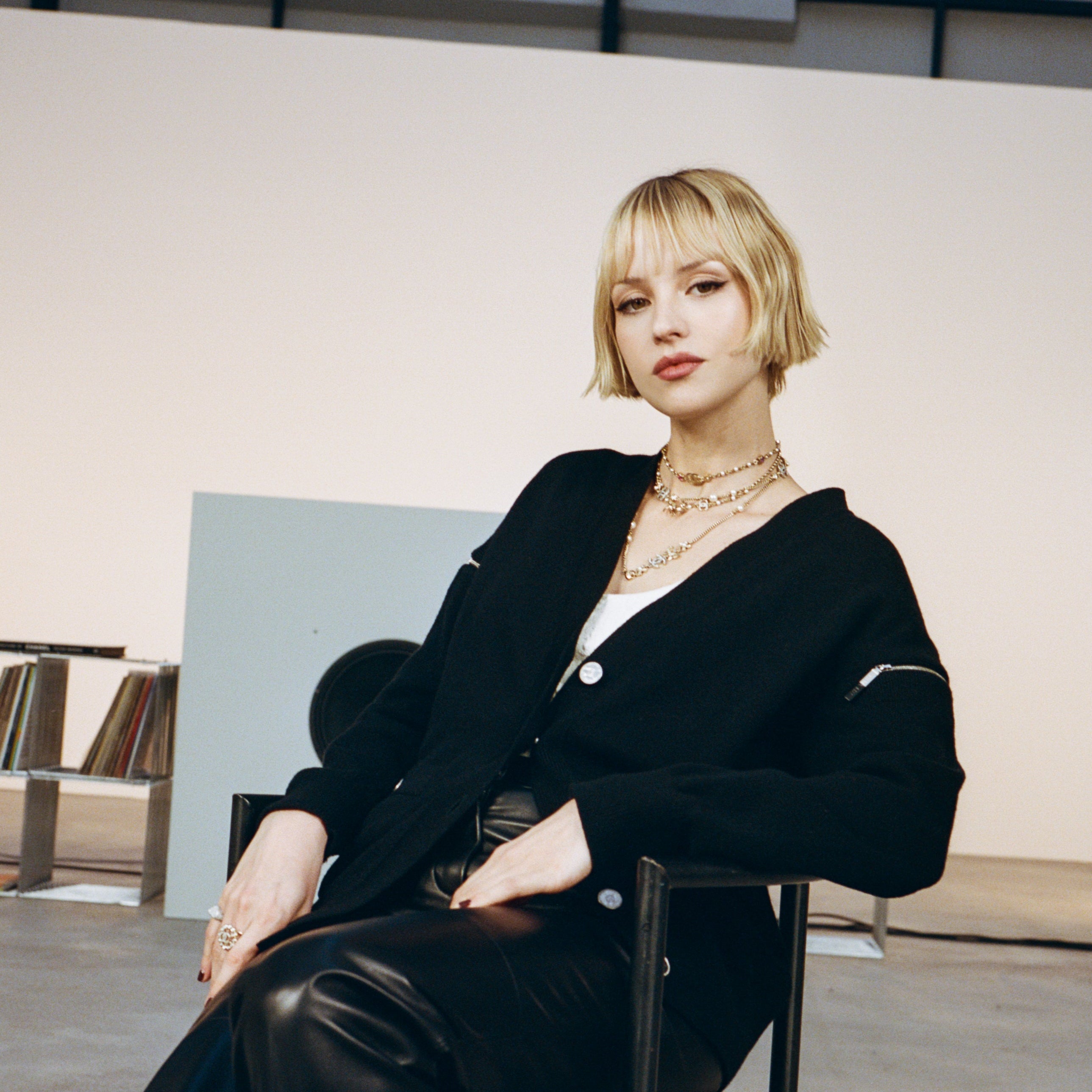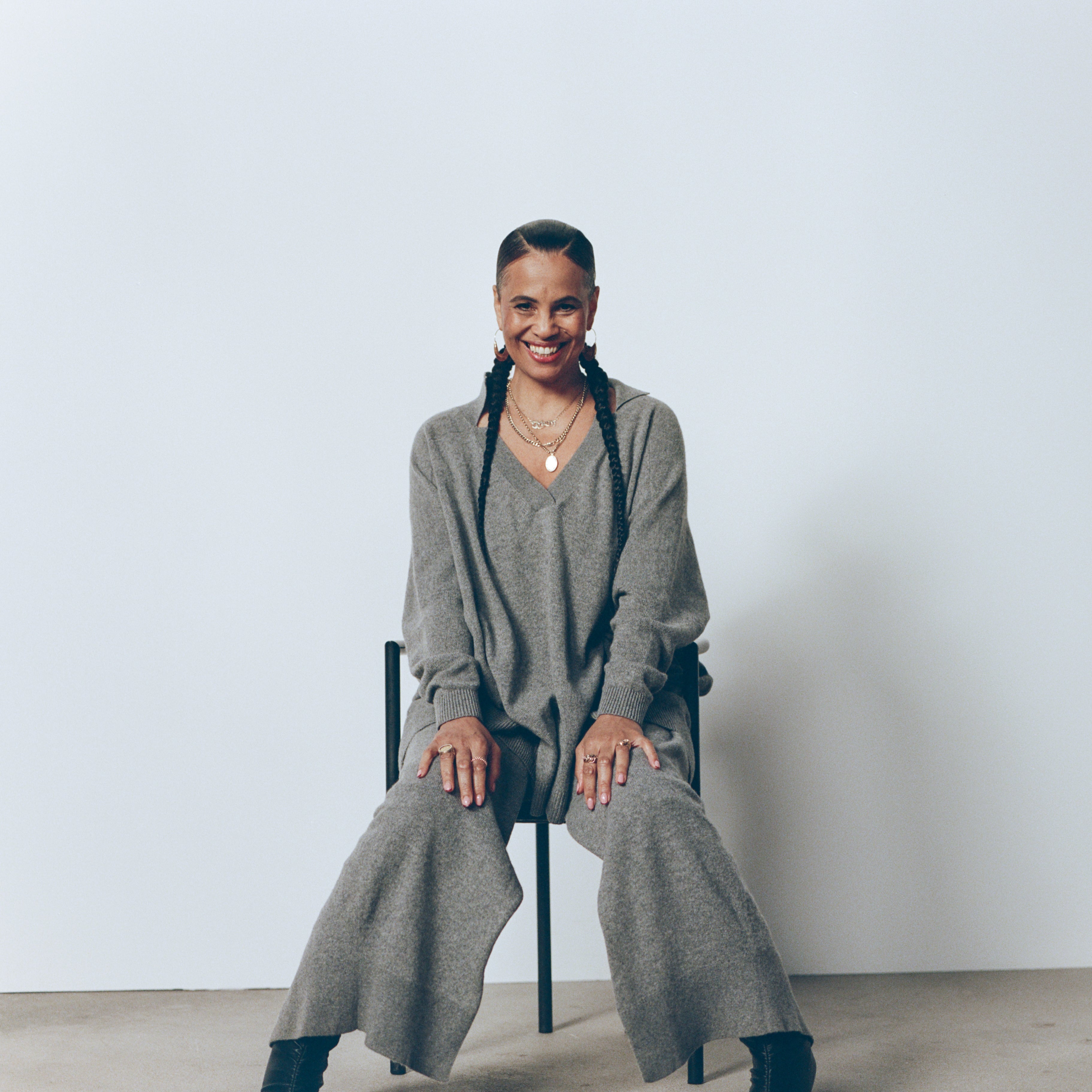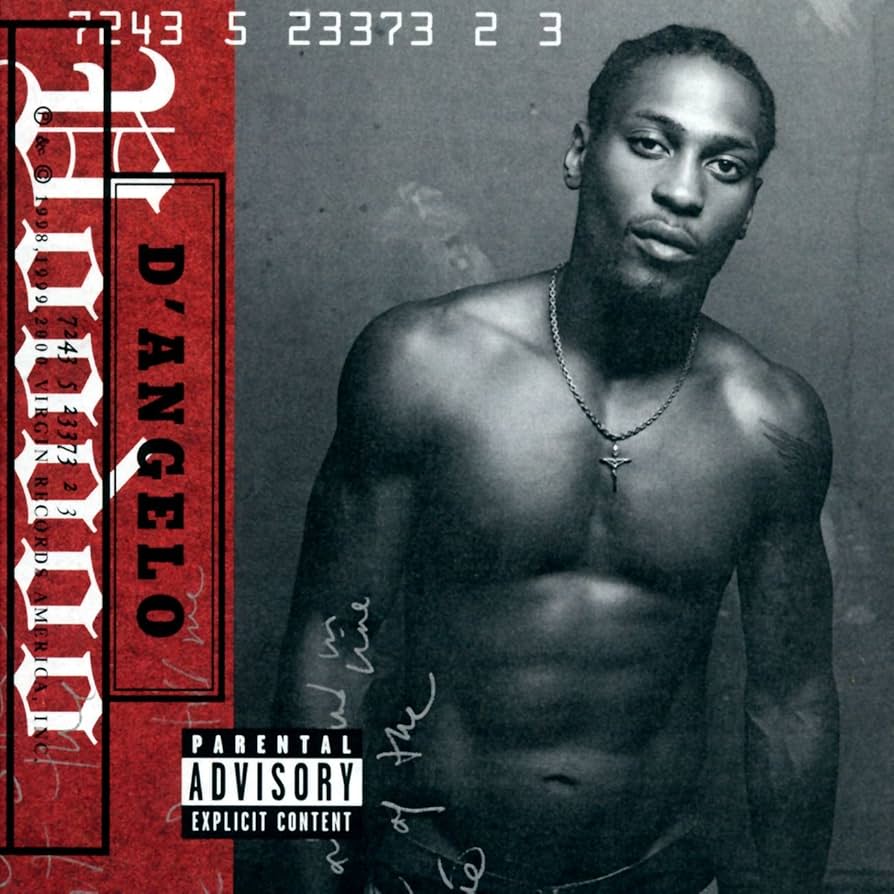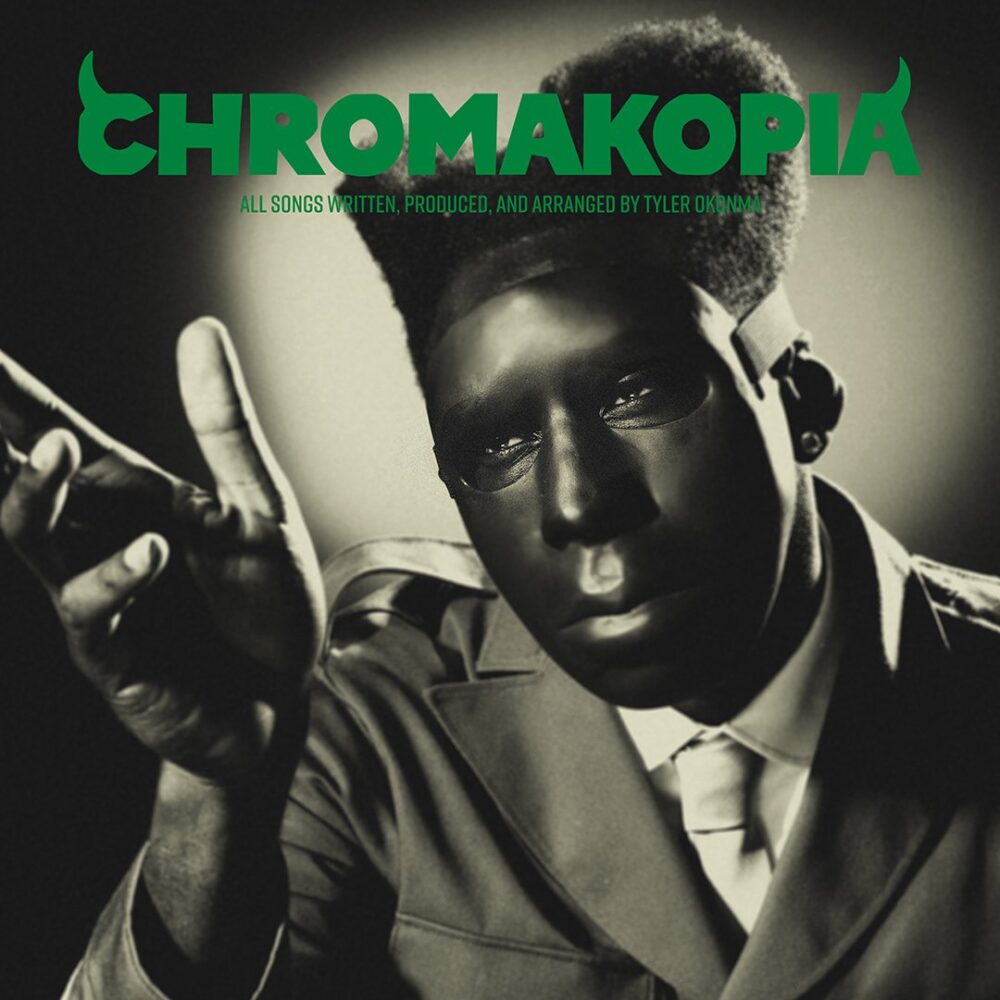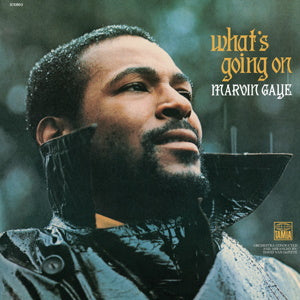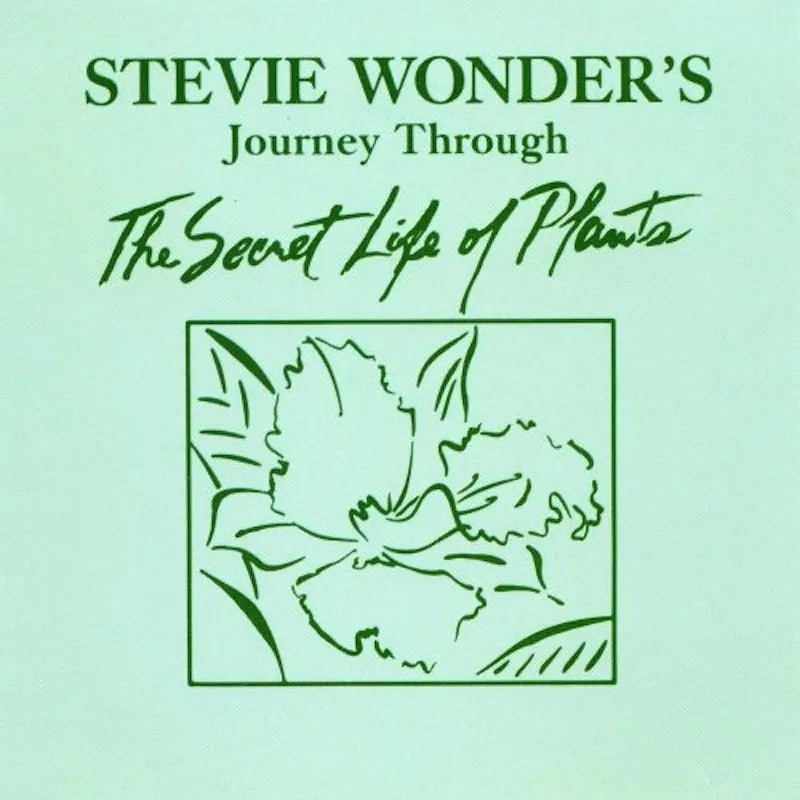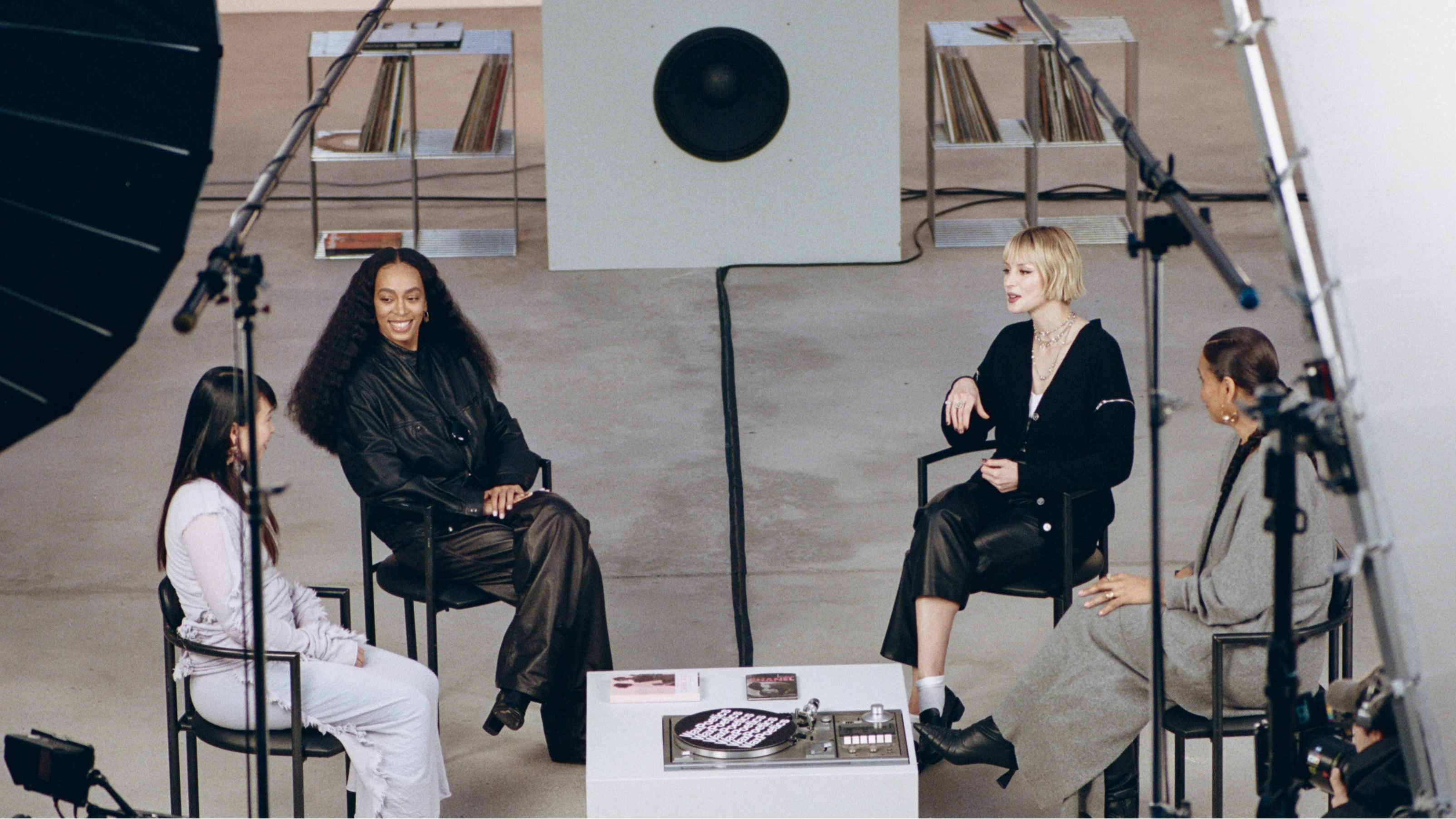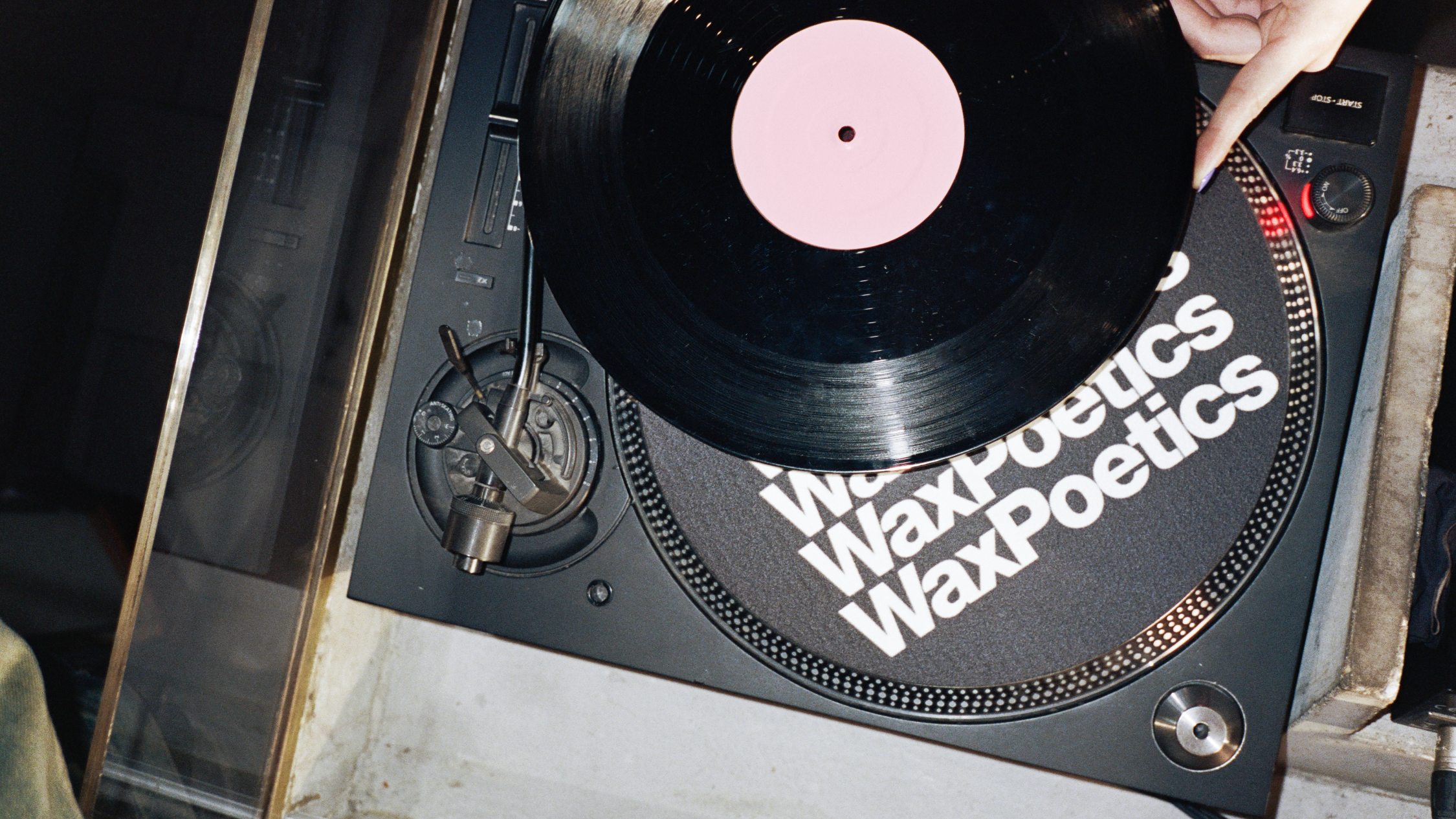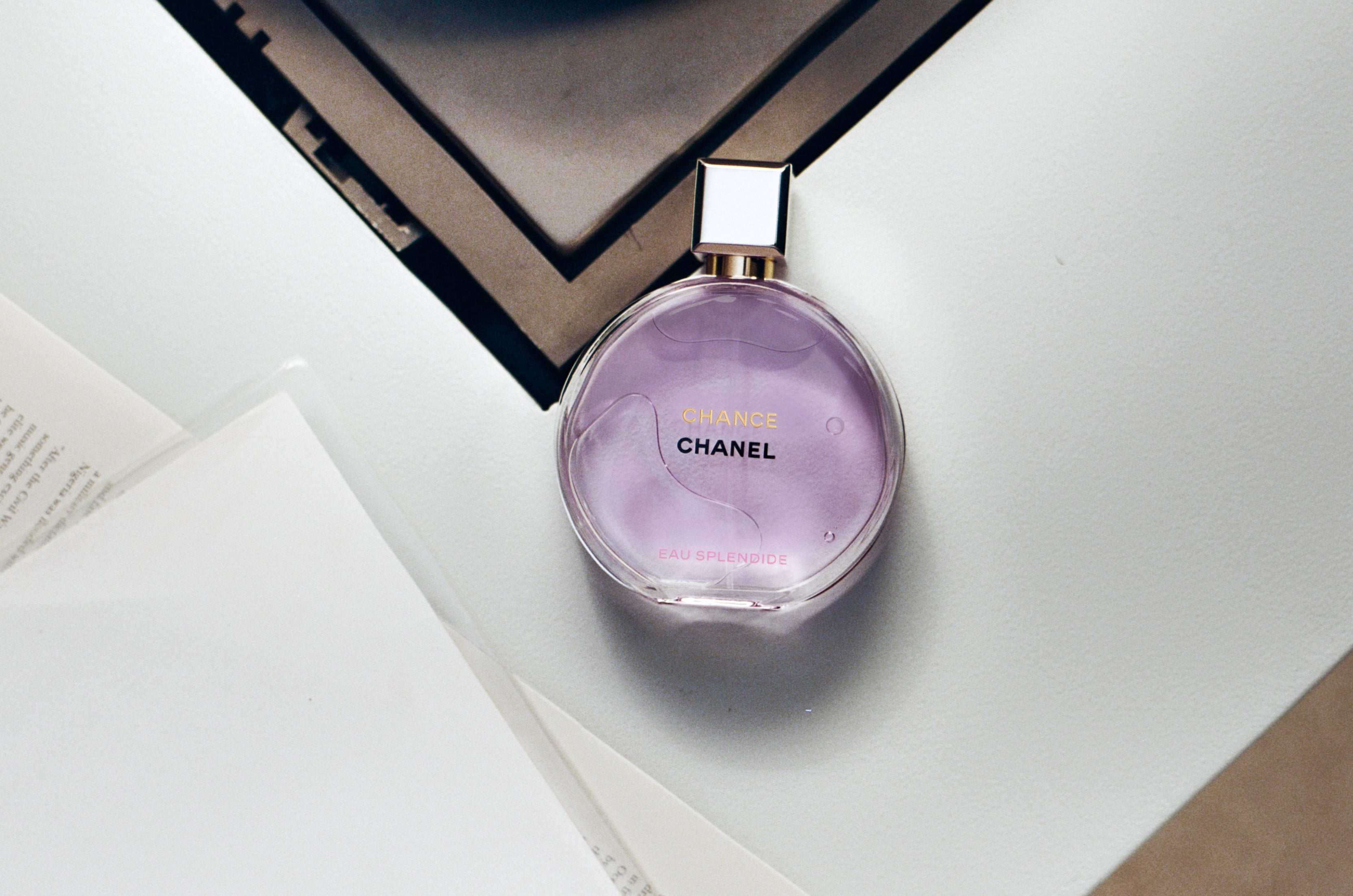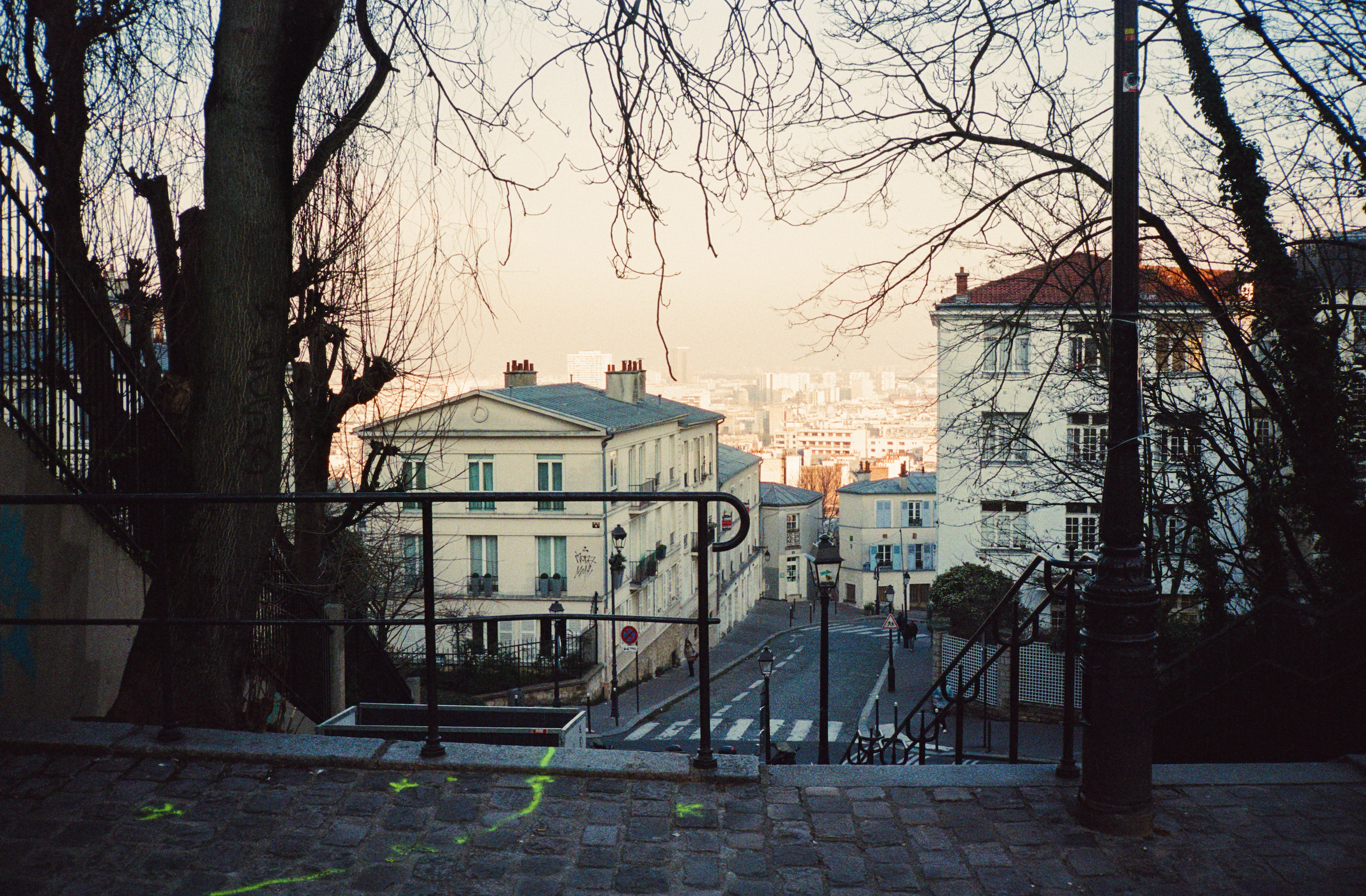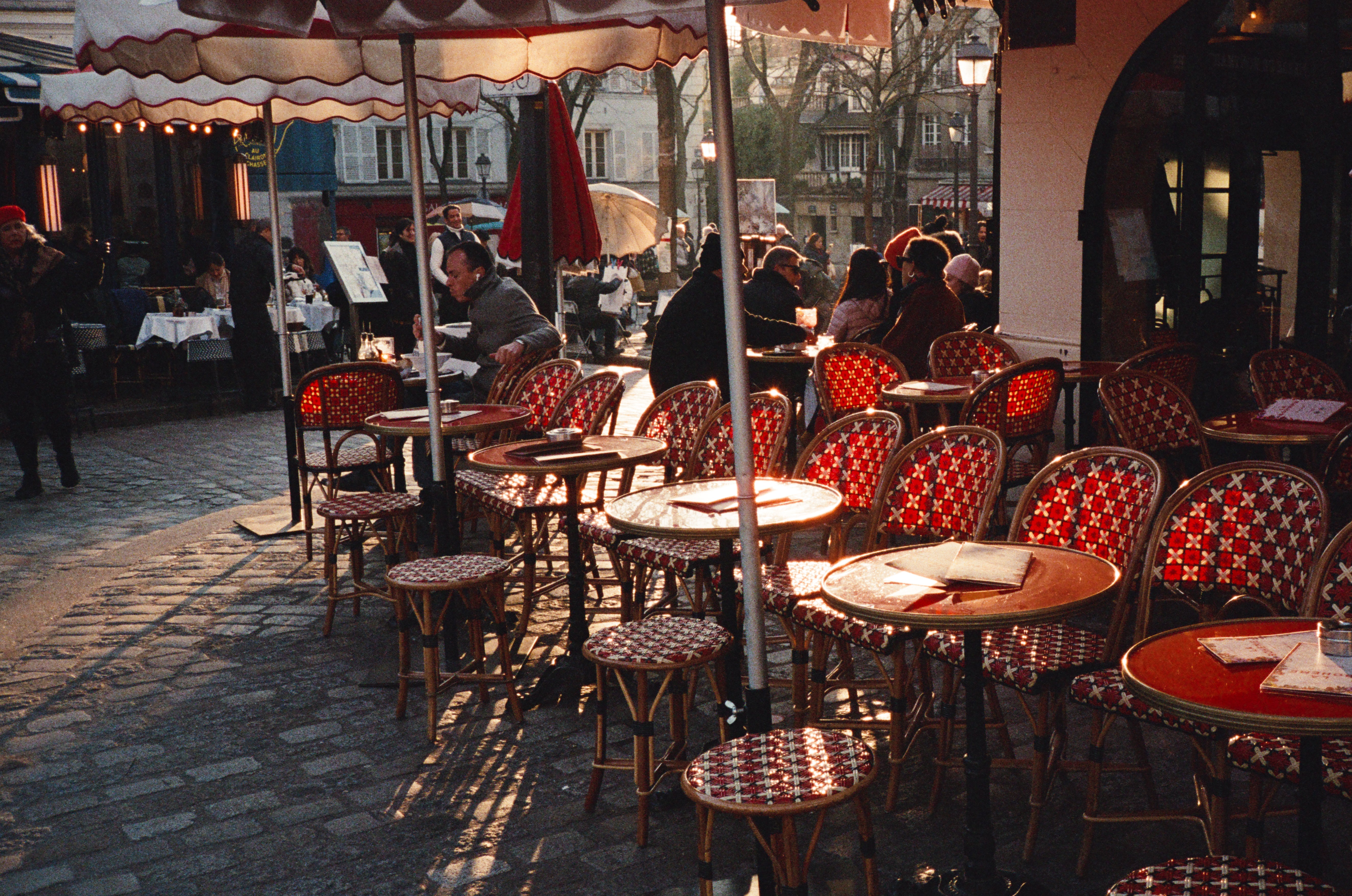Part two
As part of Wax Poetics and Chanel’s bespoke editorial series exploring life, art and creativity through the lens of music and fragrance, we curated a one of-a-kind conversation between Angèle, Neneh Cherry, Solange and Yukimi Nagano.
In the second of our three exclusive Q+A’s, the women examine playfulness and spontaneity as an integral facet of chance and how it’s necessary fuel to artistic growth and innovation.
Throughout the exchange, the ladies also reckon with finding comfort in imperfection, embracing vulnerability and how experimentation can go hand in hand with a child-like approach to creativity.
FEATURING...
Q&A
How necessary is playfulness to the creative process?
Angèle – I think having fun in the studio, even if I'm by myself or with musicians, I know that I always try to have fun. Even if it's not always easy, because sometimes you're writing a song about something that's pretty deep or hard. But I think in the big picture, having fun and trying to put some light in the process is so important, because then you have to carry the album and the music with you on tour. It will stay with you in a way for forever. Sometimes it's even hard to record the vocals, because when I record, I always do it at my place in my living room with my dog sleeping next to me. Chilling with my tea, then suddenly I have this song, and I have to record the new vocal in a studio that's pretty cold with someone that's pressing play and telling me “Okay now”. I feel like bringing some fun and bringing some joy in this process really helped in sharing it with the people. That's what I think.
Yukimi – Playfulness is, for me, it's an important part of the process. I don't have to take myself too seriously. I think that’s important. To just be able to try stuff that maybe feels silly or stupid in the moment. Being on the edge of being uncomfortable, almost but just being in a safe space where you feel comfortable enough with the people around you. It's not like anything has to be released if you don't want it too.
Neneh – Yes, it’s about taking the risk and experimenting if you feel something. Feeling like you’re in a safe enough space to try it.
Angèle – A vulnerable position where you don't really know where it’s going to go.
Neneh – I think a lot of things happen by accident. I write a lot with my husband. Sometimes there's lyrics where I might have sung something into my phone or whatever, and he'll hear the wrong thing, and actually the wrong thing becomes the right thing [laughs].
Solange – I’ve been having fun with playfulness, playing the drums on music that I’m working on. I played the drums as a teenager. I'm a pretty shitty drummer, but there's something about the cadence…
Yukimi – …and also the repetition!
Solange – And also, I think that the laxness and the raggedness, has a little pocket to it. Just feeling that spirit of playfulness and trying something new or not taking yourself too seriously. You feel it in the music and it becomes a part of the spirit.
Neneh – It’s a life force. There's a good English saying; when something's “tongue in cheek”.
Angèle – What does that mean?
Neneh – Tongue in cheek is like when it's not really a joke, but it's not taking itself too seriously. You know? It's like an undercover joke.
Yukimi – A friend of mine once said, I don't know where he got it, but it stuck with me. He said, “the genius stuff is right next to the really shit stuff”.
Solange – It’s true.
Yukimi – You don't want to play it safe. I think to try things, you’ve got to be relaxed and when you’re relaxed, you play!
Neneh – I had a whole period where I was really struggling with singing because I was thinking too much. I was thinking before I opened my mouth. I just ended up sabotaging myself to the point where I completely lost my confidence.
Angèle – Sounds familiar!
Neneh – It was a really, kind of crazy hard time. I think in the end, what brought me back was the people that you're surrounded with. I feel like every album that I make; I always end up building a new family. Sometimes there's a reoccurring family member but building a safe family, where you can just be in the space and play around. Quite often, I think that gives birth to things. It's so important.
What’s the next leap of faith you want to take?
Solange – The next leap of faith? I want to write an opera, and I want to write an album for the tuba. Those are going to take incredible leaps of faith. Mainly because I know that that's not necessarily what people are waiting for.
Neneh – But I am! That sounds great [laughs]
Yukimi – That sounds amazing.
Solange – I feel like I have a story to tell, and I feel like opera is the right context and the right medium. Being able to invite costume, theatre, dance, narrative and storytelling in all of these ways. I'm not sure when it'll happen, but it will require a leap of faith. I've been talking to people, and they're like, you plan an opera five years in advance. We can talk about 2030 but coming from the music world as we know, there’s the quickness and the turnaround of things being so immediate. It’s just having the faith that there's going to be a story that I'm going to want to tell in five years that's going to still feel fresh and timeless. I need faith in myself.
Wax Poetics – Obviously, you just published your book. I can imagine that was quite a big deal to share so much of your life; personal and professional. That was a leap of faith, so now that you've done that, what would your next one be?
Neneh – I never thought I would actually get to the end. That this book would actually be a finished thing that would go out into the world. It just seemed completely unfathomable at one point. And then two weeks after the book had been out, Cameron, my husband, was like “Okay, let's make some music”. And I was like “No! Absolutely not!”. I know I need to make some music, but I don't actually have the mental capacity, because I was scrambled. I had lock jaw, almost from just clenching my teeth every night because I had so much stuff in my head. Anyway, it all went on to the pages and it was done. Now? I guess my leap of faith is quite a simple leap of faith, in one sense, because I just feel like I need to make another record. I need to make some more music., I always feel like when I come to this place of where I need to start, I always feel like the start is always like a new beginning. So, until I've got out of the waiting room and into the kind of inner sanctum of making music, it always takes a massive leap of faith. I feel like I have so much shit around my head and things that feel so unfinished. Sometimes I feel like I can just stretch my hands into the little funny things that are flying around and hope that I catch some of the things that I feel. I'm just kind of right there. I'm like, “maybe I'll write something today”. It’s both a kind of very beautiful, slightly painful and slightly erratic place, but you just have to trust in the gods and go.
Angèle – Well, I would just expand on this idea of when you make music and you make art, you don't want to think about the product. Or the fact that an album needs to be released, because obviously it's the idea when you’re going through it. But I think this possibility of making music and making art, without thinking about what it's going to be is so precious. This is something that I really try to keep because sometimes you get lost by doing something and thinking “Oh I have to release a new album”. Because when you say, “I have to make music”, I hear that you need this for yourself first. Of course, we’re so lucky to have an audience that's waiting for music. But also, I think this connection that you have with yourself when you're making art for yourself first, because you have things to express, because you have things to say, and then magically it becomes something that you share. But I love this time when you're just with yourself, doing art, creating something, and it's very pure. Keeping it pure until the very end.
Neneh – It’s a funny, crazy thing. And I feel like it has a duality.
Angèle – Yes, because you want the audience to be there, obviously for what you have to express, but also you need it to be really pure and true to do it.
Neneh – It’s both personal and a gift. All at once.
Is taking a chance a necessity in art? To constantly be on that edge of going further and seeing what’s beyond?
Yukimi – I feel like just going up on stage is taking a chance. Being vulnerable, and writing music is taking a chance. I think being here and talking to each other is taking a chance. It comes with being an artist. You take chances all the time. Whether you kind of consciously want to do it and try to direct yourself to go this way or that way, you're always doing it because you know you're sharing a part of yourself with people. Leaving it there for people to like or not like, or whatever. I think it just comes kind of with the territory. That'd be my quick answer.
Neneh – I think you're always taking a chance, but I don't think that I would go out of my way to do something I've never done before or something completely different. I think it's much more about like, the continuation, and that is not always an easy thing to stay with; to keep following your path. I think it's kind of exhausting. Taking a chance is not reinventing yourself. I think some people can misread it as that.
Yukimi – It could be like a pressure thing.
Neneh – It could be a bit pretentious like. I've always had a wanting to move forward. Even though there are parts of how you sound and what you do that is on repeat. That’s who you are, but it’s about wanting to move forward. Pushing the boat out a little bit each time.
Solange – I agree with you that there is sort of a demand for artists, especially women artists, to constantly be reinventing themselves. It’s always an idea of “this is the new era”.
Neneh – Or what’s “the look” this time?
Solange – Constantly upping the ante. I definitely try to be conscious of creating resistance there as well. If it doesn't feel like a natural evolution, I think that it could be a forced way of taking a chance. It’s beautiful to see those markers of time, when you look at a trajectory of an artist's career. You see an image of them or a video, and you're able to identify that time and what they were emoting. But the expectation that every time, things are going to have this dramatic shift is a lot of pressure.
Neneh – I mean, it makes sense, because each time you're doing something, you are kind of taking a chance.
Yukimi – You kind of want to differentiate taking a chance and being brave and not confuse it with trying to be productive or being hard on yourself. I definitely struggle with that. Maybe I got it from my dad or something, but I feel good when I've been productive. I’m trying to challenge that and I need to be brave to do that. To slow down and give things time when you want to push things or change things. You don't want to necessarily force the chance.
Solange – Agreed.
Name an album by an artist where you feel they were “taking a chance”?
Solange – There’s far too many. Lord.
Neneh – The first thing that came into my head was ‘What's Going On’ by Marvin Gaye. I think that album is such an important record. I have listened to that record throughout my whole life. It still gives me goosebumps. He took a massive chance. In fact, Berry Gordy did not want to put that record out. That was him processing the Vietnam War, that was his offering to the world in that time. I remember I was living on the Lower East Side in New York when that record came out. I remember the mood driving through Harlem, what you saw going up to my family, who lived up on 143rd street. I remember the feeling and what healing that record brought, and it still does. He had to fight to have that record come out.
Solange – That’s a very good one. I think about Stevie Wonder's ‘Journey Through The Secret Life of Plants’. When I think about a record where an artist really took a chance, I think that it is such a bold, adventurous record. Just from a thesis standpoint, saying, I want to know what plants are feeling, what plants are talking about when we leave the room and how they see us. And to decide to write, 24 songs committed to an extension of that thought and knowing how it was received, coming off of the backs of much immediate pop music. I just think about the chords. I think about the tempo changes. I think about going from classical to jazz to swing to R&B. There’s a song on it called ‘Come Back as a Flower’ by Syreeta, who he was married to at the time.
Neneh – I love Syreeta.
Solange – She’s the best. To think about something as ethereal, ambient, light and floaty in that way coming off of the backs of the iconic Stevie Wonder records, I think was just so incredibly bold and true to what he must have been feeling. It's played a huge, huge, huge part in how I experience sound. The chords are kind of like my foundational chords. I actually got the chance to be connected with him recently, and I sent a voice note, and it went on way too long about this album. I kind of blew my one Stevie Wonder chance. I needed a little brevity, but I could talk about that record forever and ever.
Wax Poetics – Angèle, what’s your selection?
Angèle – It’s a hard question, because there are so many I could speak about. One album that I listened to recently was the last album of Tyler, The Creator [Chromakopia]. I listened to the whole album and I really felt like I was taken in on a journey. I loved how true and how honest the lyrics were when you really get into the story of his family. It feels so honest and so vulnerable. I also loved the change in rhythm and styles, I love this about him. He’s really bold in how he goes about going across different styles, making you dance and cry in one song, playing with this voice. Then having a very vulnerable voice when he speaks about his father and contrasting it by rapping right after. This album really gave me a lot of information, and I felt really inspired by this album. I thought it was really bold and beautiful.
Solange – Shout out to my brother.
Yukimi – My album would be D’Angelo’s ‘Voodoo’. I remember when I heard it the first time, I was in high school. I was waiting for that album, and when I heard it, it was like, sonically, like nothing I'd ever heard before. I remember how in that moment it hit me. It's like a button. It makes me cry, even just talking about it makes me cry. Now it's a legendary album, but at the time, when it came out, it was really something different. It was very brave.
Solange – What’s your favourite song on there?
Yukimi – ‘Africa’ is my favourite song. It makes me cry.
Solange – The drums on that song are just whew. I think mine is ‘Send It On’.
What would you say “taking a chance” sounds like?
Yukimi – Spontaneously, what I think of is a kind of leaning into life. It's what I think of. It’s like having your eyes closed and jumping back waiting for something to catch you.
Angèle – I was going to say jump also.
Yukimi – Having some kind of a faith in that something will catch you and that there is some kind of a plan there. So, I guess flying.
Angèle – I see it as jumping into the unknown. You have an idea of what to expect. You never really know how things are going to go. So, you take the chance to put yourself in a vulnerable position and by creating a safe zone. It’s important to be sure that you're very well aligned with yourself, the people that you work with, and that the people in your family are like good support. Then you can jump with your eyes closed and know that you know you will have support, and that you're also supporting yourself.
Neneh – Taking a chance, to me sounds like a really good fucking beat. A dope bassline. [laughs].
Solange – 808s [laughs]
Neneh – Sometimes when you’re just dangling on the edge and then the beat drops, and you're just [stomps] fine. I think so much of my courage has come through sound. I started going to sound systems when I first moved to London. Soundsystem culture was really my big discovery. Going in and hearing these masters of sound, like Jah Shaka or Stereograph sound system. It gave me courage. It made me feel I could go anywhere. But the sound can also be very gentle. Sometimes it needs to be completely the opposite. It doesn't have to be the things that make us brave.
Solange – I think taking a chance for me is embracing the fear of the unknown. I used to be really afraid of the unknown, death, silence. All of these things where I had to really confront my mortality or the afterlife or the supernatural. I think that came from a place of wanting to control. Over time I've been able to embrace taking the chance of being present in the unknown and allowing it to guide me into the next chapter of my work. I think about composing for the ballet, and them [The New York City Ballet] telling me it needs to be 14 minutes. To me, that was like such a lengthy piece of music where there were no vocals involved or melodies coming from the voice. I sort of just let my intuition guide me through that process. And sonically, the fear of the unknown has so many twists and turns outside of what I imagine it to be initially. That’s really special. When I'm producing a track, there is a little bit of structure there, whether it be a click track or something that grounds it like a melody. And that was really nice to just live in the spontaneous journey of the song, guiding me, and not me guiding the song.
Neneh – Trusting in your intuition is a really powerful relationship because fear is so paralyzing. I've also struggled with horrible catastrophizing and just general fear of a lot of things. Having a respect for whatever that means, but also being able to surrender to that place of trust where you're okay with the fact that there are certain things in this universe that you can't and will never have control over. You will never have control over those things, so, you just have to somehow surrender to that.
Solange – That is a word.
Watch the full roundtable discussion featuring Chanel Ambassador Angèle, alongside Neneh Cherry, Solange Knowles and Yukimi Nagano here
DISCOVER THE REST OF THE series
About chanel
Chanel is a private company and a world leader in creating, developing, manufacturing and distributing luxury products. Founded by Gabrielle Chanel at the beginning of the last century, Chanel offers a broad range of high-end creations, including Ready-to-Wear, Leather Goods, Fashion Accessories, Eyewear, Fragrances, Makeup, Skincare, Jewellery and Watches. Chanel is also renowned for its Haute Couture collections, presented twice yearly in Paris, and for having acquired a large number of specialized suppliers, collectively known as the Métiers d’Art. Chanel is dedicated to ultimate luxury and to the highest level of craftsmanship. It is a brand whose core values remain historically grounded on exceptional creation. As such, Chanel promotes culture, art, creativity and “savoir-faire” throughout the world, and invests significantly in people, R&D, sustainable development and innovation. At the end of 2023 Chanel employed more than 36,500 people worldwide.
